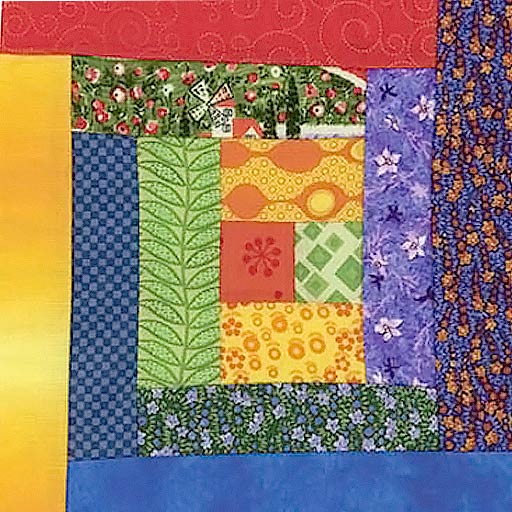Q: Am I willing to offer assistance as part of my religious community serving its members? Am I equally willing to graciously accept the help of others? PYM Faith and Practice, 2002
“Temporarily able-bodied” is the term used by Nancy Eiesland, in her book The Disabled God, to refer to people who are not living with disabilities. In fact, at least half of us will experience some form of disability during our lifetime, either short term or lasting. As our population lives longer, being disabled will likely be inevitable for even the healthiest among us.
We live in a society that promotes independence and self-reliance. Friends may find themselves better prepared to offer care than to receive it. And, while we may be compassionate when others have needs, how willing are we to accept our interdependent natures when it comes to our dependency needs?
“Whenever major change disrupts any relationship-disability, or moving from one stage of life to another-everyone involved has to build a new relationship with the other if that relationship is to continue and flourish.” John Zeisel, PhD, pg.177, I’m Still Here: A Breakthrough Approach to Understanding Someone Living with Alzheimer’s.
This new relationship involves changed roles for people who need care- and caregivers. Understanding that we need to rely on others may not come naturally, but this acceptance can give us strength and allow us to focus on deeper aspects of our relationships. Accepting change allows us to make the most of our lives under changed conditions.
Here a few inspirational stories from people who have experienced major changes due to illness:
In PYM’s 2002 Faith and Practice, Jennifer Faulkner is quoted, “I have a vivid memory of looking down on myself on the bed; doctors and nurses worked on that body, and I felt held in such secureness, joy and contentment the utter rightness of things.” Later, as she experienced setbacks and finally recovery, she said she “never completely lost the memory of being held and the wonder at being alive.”
Ram Dass, in Still Here, writes, “Having accepted my predicament, I’m much happier than I was before. This troubles some of the people around me. They have told me that I should fight to walk again, but I don’t know if I wanted to walk. I’m sitting—that’s where I am. I’m peaceful like this and I’m grateful to the people who care for me…I’ve grown to love my wheelchair (I call it my swan boat) and being wheeled around by people who care.” Pg 6
These stories show how some have found peace with illness and disability. Many of us, when faced with challenges, need to work to reach such acceptance. This work may likely include acknowledging any losses our illness or disability presents.
Tips for Finding Peace with Being Cared for:
- Think back to simple tasks and follow the trail of what truly enables a person to accomplish a task. For example, Joe went to the market for groceries, loaded them in the car, and put them away at home, all apparently without assistance. However, what if the workers had not been there to open the store, the farmers hadn’t grown the food, the traffic lights were not working? The point is, even the simplest tasks, when we really think about it, require a system of interdependence. You have participated in this system, and you still can, though perhaps in new ways.
- Be mindful of what you can do, small and large. Make a list of what you are able to do for yourself, and be willing to think in small increments. You need help getting dressed, but you can make choices of what to wear, perhaps get one arm in one sleeve. Encourage your helpers to allow you to do what things you can, regardless of how small, and even if this slows things down. Think in big picture terms of what you can do as well— you can listen to others, give advice, appreciate beauty.
- If losses come up (or frustration over what you can no longer do), honor your emotions. Hold yourself in the light as you would a friend who was experiencing what you are.
- Practice gratitude for what you have, your experiences, and the people around you. List it. If you cannot write, allowing someone to record this for you will be a gift to that person.
“The whole idea of compassion is based on a keen awareness of the interdependence of all these living beings, which are all part of one another, and all involved in one another.” Thomas Merton
Download this article in pamphlet form
LINKS TO MORE INFORMATION: Click on the blue text below to be directed to outside websites that offer additional information on this topic. Articles from this site will open in the same browser window/tab. Ziestomverslowcre . Articles from other websites will open in a new window; when you are done, simply click out of that window and you will be back on this site.
More articles on this site:
Generativity and Aging
Role of the Spiritual Community in Care
Other articles/links:
Aging As A Spiritual Practice
Gratitude Log
Sources/Further Reading:
Ram Dass, Still Here – Embracing Aging, Changing and Dying, 2000, Riverhead Books, New York, NY.
Nancy Eiesland, The Disabled God, Toward a Liberatory Theology of Disability, 1994, Abingdon Press, Nashville, TN.
Mary Morrison, Without Nightfall Upon the Spirit, Pendle Hill Pamphlet 311, Pendle Hill, Wallingford, PA.
John Yungblut, On Hallowing One’s Diminishments, Pendle Hill Pamphlet, Pendle Hill, Wallingford, PA.
John Zeisel, PhD, I’m Still Here: A Breakthrough Approach to Understanding Someone Living with Alzheimer’s, 2009 Penguin Group, New York, NY.

